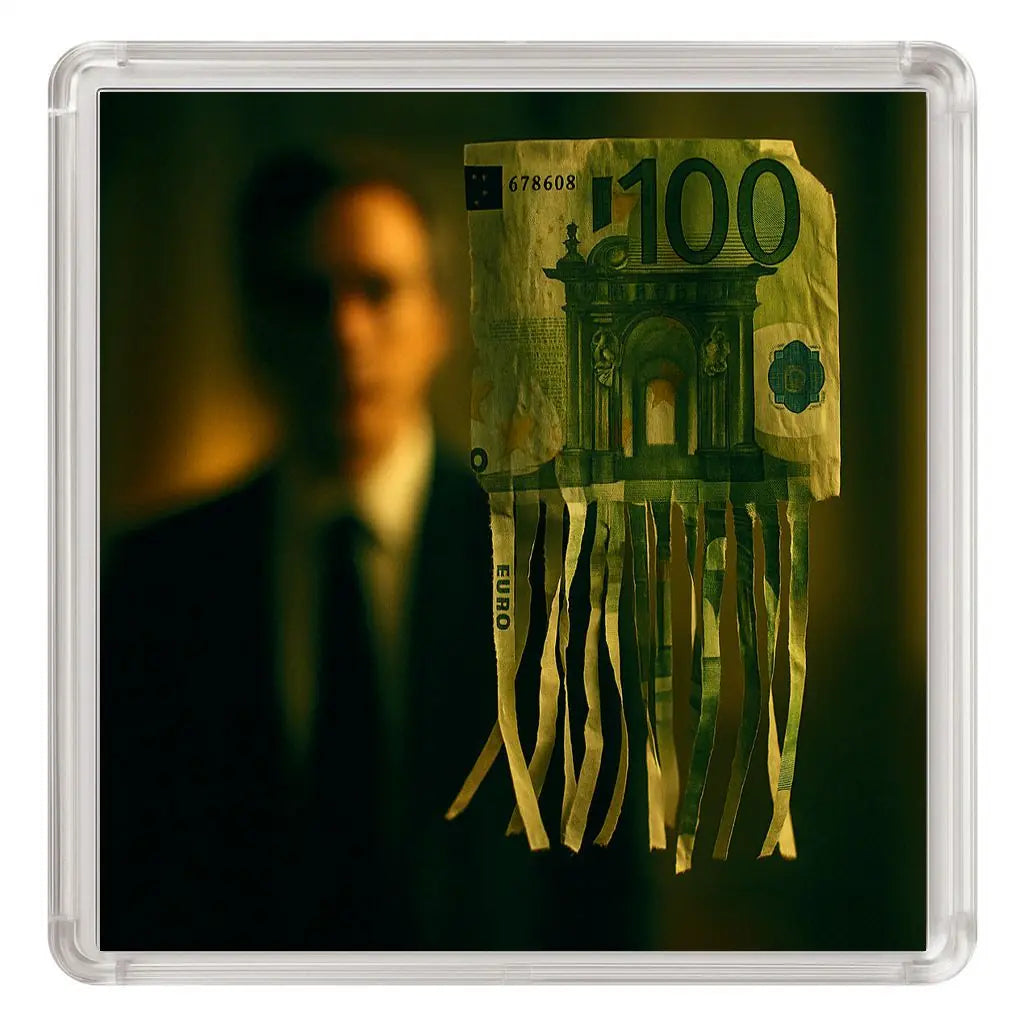
THE MYTH OF NEUTRAL MONEY
Share
We have always been told that money is a neutral tool, a simple means of exchange without taste or odor, a technical instrument at the service of the economy. As if money were nothing more than a perfectly balanced scale, a universal language that never takes sides. We would have us believe that a ten-euro note has the same meaning for the worker, the banker, the refugee, and the soldier. We would have us believe that money does not choose sides, that it is as indifferent as the laws of gravity. But this is a lie. Centralized money can never be neutral, because behind every unit printed or created, there is a will, a hierarchy, an invisible hand that is in no way natural.
The fiction begins with central banks. They are presented as scientific institutions, populated by serious experts in suits, who adjust interest rates like the temperature of an oven. Their speeches are riddled with graphs, curves, and equations that give the illusion of objective rationality. There is talk of "central bank independence," as if a handful of technocrats, appointed by governments or even more opaque circles of power, could detach themselves from political and geopolitical interests. It is a charade. Independence does not exist. Objectivity does not exist. Every monetary decision is a profoundly political act, enriching some and impoverishing others.
Look at recent history. The US dollar has never been neutral. It has been the United States' supreme monetary weapon since the end of World War II. Beneath the veneer of neutrality, it is the vector of domination. The SWIFT system, controlled by the West, can disconnect any country from international trade overnight. It's called "economic sanctions," but it's a war waged by currency. When the euro was born, the promise was an independent currency, free from national pressures, driven by an ECB that would answer to no one. But in reality, the euro is a political construct serving a centralized European project, and the people have never had a say. Every bailout, every quantitative easing program, every injection of liquidity is a disguised redistribution of wealth, a manipulation of value to benefit those closest to the source.
We still dare to speak of neutrality, when money is systematically the instrument of empires. The yuan is not neutral; it is an extension of the will of the Chinese Communist Party. The ruble is not neutral; it is a weapon of the Kremlin. The dollar is not neutral; it is the armed wing of the Pentagon and Wall Street. Even the euro, which claims to be consensual, is a currency that confines nations in a fiscal straitjacket. Behind every currency, there is a border, a government, an army. Behind every centralized currency, there is an interest.
Monetary neutrality is therefore a useful fiction. It serves to mask the violence hidden behind the numbers. Economists, with their own equations and complicated models, play the role of modern priests, justifying arbitrariness with technical language that the majority does not understand. We are led to believe that money is an exact science, when it is nothing more than social engineering. Interest rates, inflation, public debt: none of this is neutral; it is a way of organizing society, of deciding who survives and who collapses.
And yet, people continue to believe it. They want to believe that the money they use every day is impartial. It's reassuring, like believing that justice is blind or the press is free. But the truth is more brutal: every euro spent is already a political statement. Every dollar held is already support for the empire that guarantees it. Money is a silent war, a war we lose without even realizing it's happening.
Then Bitcoin arrived, and the fiction collapsed. For the first time, a currency exists without a center, without a leader, without borders. Bitcoin is not the product of a state, a bank, or an army. It belongs to no one, and therefore it can belong to everyone. Its neutrality comes not from a declaration, a charter, or a committee of experts, but from its very structure: an open, decentralized, censorship-resistant protocol. No one can decide to print more bitcoins. No one can change its rules to save a failed state or enrich an elite. Bitcoin's neutrality is radical because it is incorruptible.
Therein lies the scandal. For the first time, neutrality is no longer a lie, but a mathematical reality. Bitcoin doesn't care if you are rich or poor, Western or Eastern, powerful or marginal. A transaction is worth a transaction, regardless of the identity of the person issuing it. The network asks no questions, it doesn't judge, it doesn't discriminate. And this is precisely what centralized systems cannot tolerate. Because their power rests on the ability to discriminate, to punish, to choose who has access and who must remain in the shadows.
So what remains of the myth of neutral currency? Nothing. The neutrality of central banks is a show. The neutrality of national currencies is a farce. The only currency that comes close to what the word "neutral" actually means is Bitcoin. Not because it is apolitical, but because it is inherently fair. It is a currency that knows no borders, that has no favorites, that bows to no power.
The conclusion is simple and brutal: using the euro, the dollar, or the yuan is playing by the rules of an empire. It is agreeing to participate in a war that does not speak its name. Using Bitcoin is refusing manipulation, it is removing currency from the political game, it is finally getting a taste of what neutrality could be. Every euro is a vote for servitude. Every satoshi is a vote for freedom.
👉 Also read:
